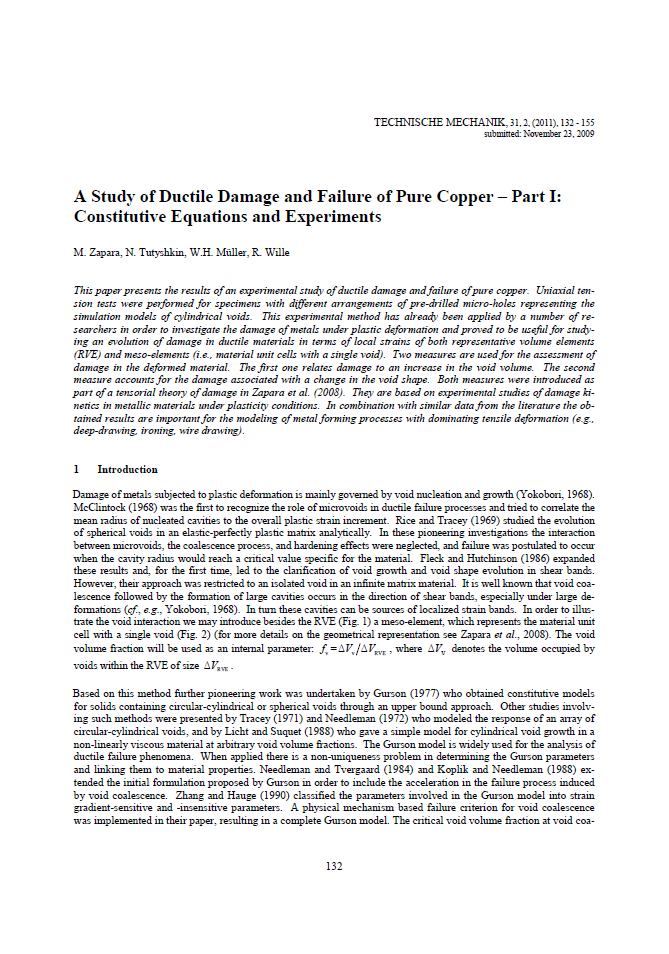A Study of Ductile Damage and Failure of Pure Copper – Part I: Constitutive Equations and Experiments
Abstract
This paper presents the results of an experimental study of ductile damage and failure of pure copper. Uniaxial tension tests were performed for specimens with different arrangements of pre-drilled micro-holes representing the simulation models of cylindrical voids. This experimental method has already been applied by a number of researchers in order to investigate the damage of metals under plastic deformation and proved to be useful for studying an evolution of damage in ductile materials in terms of local strains of both representative volume elements (RVE) and meso-elements (i.e., material unit cells with a single void). Two measures are used for the assessment of damage in the deformed material. The first one relates damage to an increase in the void volume. The second measure accounts for the damage associated with a change in the void shape. Both measures were introduced as part of a tensorial theory of damage in Zapara et al. (2008). They are based on experimental studies of damage kinetics in metallic materials under plasticity conditions. In combination with similar data from the literature the obtained results are important for the modeling of metal forming processes with dominating tensile deformation (e.g., deep-drawing, ironing, wire drawing).





